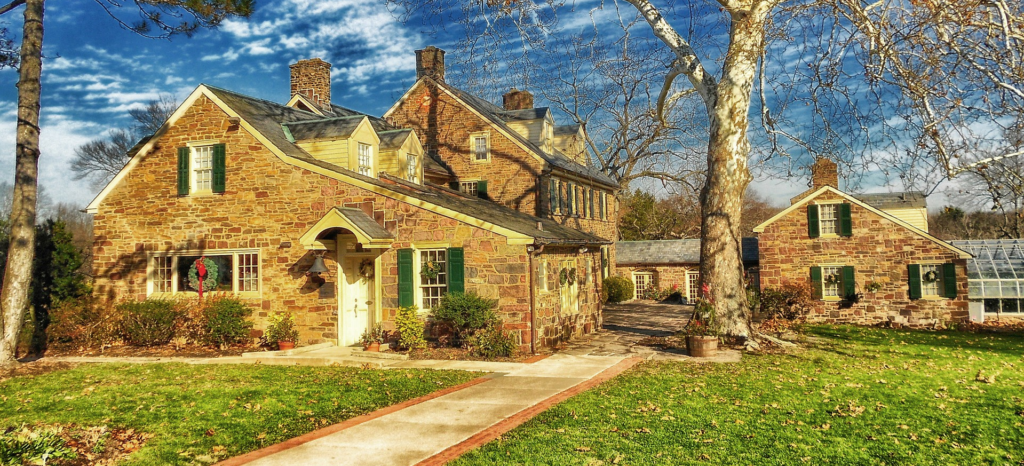When you are considering a house move, one of the first things you will need to decide is whether a move is going to be financially viable. Whilst working out the cost of moving is important and will set you back around £10,000 on average in 2022, knowing the value of your property – and therefore where to set your asking price if you decide to sell – is key.
You need to ensure that the money you make on selling your home will leave you with enough money to cover moving expenses and enable you to buy your next house (unless you own more than one property of course*).

So, how do you work out how much your home is worth?
Completing an online valuation tool is a very quick and easy way to get a ballpark figure for how much your home is worth as this will use a huge subset of data based on current selling prices, market trends and the size of your property and you will just need to submit your postcode and the number of bedrooms your property currently has.
As part of your preliminary decision-making, it is also important to get a sense of what is happening in the local property market and more generally across the UK.
The HM Land Registry lists all of the recent sold prices and trends for properties across England and Wales (in Scotland, this data is held by Scotland’s Land Information Service and in Northern Ireland by the Land and Property Services), although it does take three months after a property transaction for this information to be updated.
House price indexes from the Office for National Statistics, Halifax and Nationwide show how house prices have changed over time. Using this data will give you an idea of how much your property may have increased in value since you bought it and therefore how much it is likely to sell for now. For example, the average UK house price was £268,000 in October 2021, which is a 10.2% increase (£24,000) since October 2020 and an impressive £109,135 increase since October 2005 from an average of £158,865. If you have made a lot of modifications to your home or added a significant extension since you bought it, remember this is also likely to increase the price on top of any market fluctuations.
If you want to get an indication of the kind of asking price you could set for your home if you were to sell, it can also be useful to have a look at the current listings in your area on Rightmove and Zoopla. Finding out what houses similar in size, age and style to your own are selling for locally will help you work out how much your own home is worth in comparison.
However, many online valuation tools will not consider any modifications or extensions that you have added to the property since you bought it and will only factor in local property market trends when producing a valuation. Looking at the asking prices for local homes which are on the market currently can also be misleading because this is only an indication of what the property may achieve on the open market, not the price it will actually end up selling for. And, whilst comparing your home to a local property of similar dimensions can give you a rough estimate of what your own property is worth, valuations do fluctuate from month to month and can vary massively on an individual basis as no two homes are completely identical.
Therefore, for the most accurate valuation of your property, you would need to have a physical valuation undertaken by an industry professional such as an estate agent. They will then take into account any selling points for the local area (e.g. good schools, outdoor space and amenities) or those which are particularly unique to your property (such as a brand-new kitchen or bathroom or a large garden which is not overlooked) and any potential downsides (such as a busy road, north-facing garden or smaller than average bedrooms) when deciding on the current market value of your home.
It is also useful to get more than one estate agent to value your home and compare their estimates when it comes to deciding how much your home is worth as some agents may up their valuation figure in the interests of getting you to sign on the dotted line. Always ask for the reasoning behind a valuation and remember that a higher valuation may not automatically mean a bigger profit if an agent has high rates of commission.
If you do decide to put your home on the market at a later date, ask the agent to pop round again to provide a more up to date valuation, particularly if the last valuation was more than 6 months ago. As we have seen so prominently in the last two years, house prices can fluctuate very rapidly indeed!
*When you own more than one property, it is important to be aware that there are additional costs to consider when you sell a property that is not your primary residence. Namely capital gains tax: https://www.gov.uk/tax-sell-property